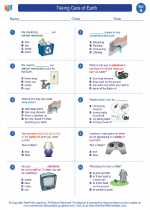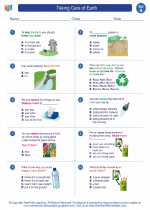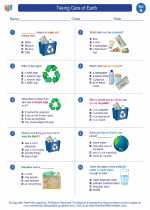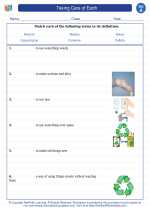Taking Care of Earth -> liquid
Liquid
A liquid is one of the three classical states of matter (the others being solid and gas). It has a definite volume, but no definite shape. Unlike gases, liquids do not expand to fill any container in which they are placed, and they have a definite volume at a given temperature and pressure.
Properties of Liquids:
- Definite Volume: Liquids have a fixed volume that does not change with the shape of the container.
- No Definite Shape: Liquids take the shape of the container they are in.
- Fluidity: Liquids can flow and take the shape of the container.
- Incompressibility: Liquids are difficult to compress.
- Surface Tension: Liquids have a thin "skin" on their surface due to intermolecular forces.
Examples of Liquids:
Some common examples of liquids include water, milk, juice, oil, and vinegar.
Changes in State:
Liquids can change state to become a solid through a process called freezing, and they can change to a gas through a process called evaporation or boiling. The temperature at which a liquid changes to a gas is called its boiling point, and the temperature at which it changes to a solid is called its freezing point.
Study Guide:
Here are some key points to remember about liquids:
- What are the three classical states of matter?
- What is the defining characteristic of a liquid?
- Give an example of a liquid.
- Describe the concept of surface tension in liquids.
- What is the process called when a liquid changes to a gas?
- What is the temperature at which a liquid changes to a gas called?
- What is the temperature at which a liquid changes to a solid called?
Understanding the properties and behavior of liquids is important in the study of science and everyday life. Remember to observe and experiment with liquids to gain a deeper understanding of their characteristics.
[Liquid] Related Worksheets and Study Guides:
.◂Science Worksheets and Study Guides First Grade. Taking Care of Earth

 Worksheet/Answer key
Worksheet/Answer key
 Worksheet/Answer key
Worksheet/Answer key
 Worksheet/Answer key
Worksheet/Answer key
 Vocabulary/Answer key
Vocabulary/Answer key
 Vocabulary/Answer key
Vocabulary/Answer key
